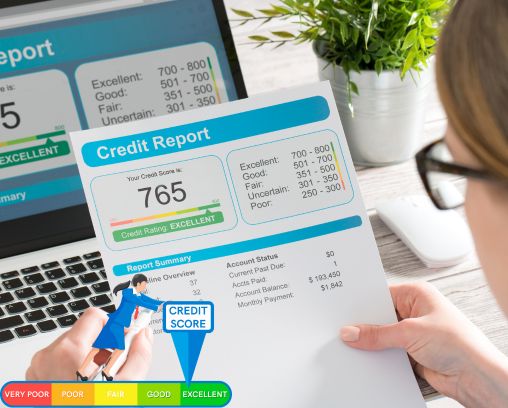Insurance. We all need it, but it can feel like a maze of confusing policies and hidden rules. What if you knew the insider secrets that could save you serious money on your premiums? Let’s expose the top 15 hidden insurance facts and give you the knowledge to navigate the industry to your advantage.
Top 15 Hidden Insurance Facts
- Your credit score can drastically impact your insurance rates.
- Minor accidents might not always be worth claiming.
- Bundling insurance policies can lead to significant savings.
- Where you live matters – location heavily influences your rates.
- Your car’s color can sometimes affect your premiums.
- Insurance companies offer a variety of discounts you might not know about.
- Your profession can play a role in how much you pay.
- Staying with the same insurer for years could be costing you.
- You can negotiate your insurance rates.
- Raising your deductible can lower your premiums.
- Installing safety or anti-theft devices can earn you discounts.
- Maintaining good driving habits pays off over time.
- Your marital status can sometimes affect your insurance rates.
- Letting your policy lapse can have serious consequences.
- You might not need all the coverage you think you do.
Fact 1: Your credit score can drastically impact your insurance rates. Think of it like a magic key!

Imagine your credit score as a magic key that unlocks cheaper insurance rates. Just like a good credit score gets you better deals on loans and credit cards, it shows insurance companies you’re responsible with money. This means they’re more likely to trust you’ll take care of your car and avoid accidents, so they reward you with lower premiums. On the other hand, a lower credit score might be seen as a risk, and you could end up paying more for insurance.
Fact 2: Minor accidents might not always be worth claiming. Don’t rush to the claim castle!

Let’s say you bump your car into a shopping cart and get a minor dent. Using your insurance might seem like the right thing to do, but hold on! There’s a catch – you usually have to pay a deductible – that’s a set amount you have to pay upfront before your insurance kicks in. If the repairs for the dent cost less than your deductible, filing a claim might not be the smartest move financially. It’s like using your magic insurance card for a tiny scratch – it might not be worth it! However, there are exceptions. If the other driver caused the accident and their insurance will cover everything, definitely file a claim. Also, if anyone is hurt, regardless of fault, you’ll probably want to file a claim to make sure medical expenses are covered.
Fact 3: Bundling insurance policies can lead to significant savings. It’s like a combo meal for your insurance!

Ever notice how combo meals at restaurants are cheaper than buying everything separately? Bundling your insurance works in a similar way. Many insurance companies offer discounts when you get multiple policies, like home and auto insurance, from the same company. It’s a win-win situation – they save money by managing all your policies in one place, and you save money by getting a discount on your premiums. Think of it as a super insurance package deal!
Read More: Evolution of Money: 15 Surprising Facts
Fact 4: Where you live matters – location can make a big difference in your insurance rates.

This might seem like a no-brainer, but where you live goes beyond just city versus rural areas. Insurance companies like detectives, consider many clues about your neighborhood to determine your risk. They look at things like crime rates, how often accidents happen in the area, how safe your neighborhood is from theft, and even how close you are to a fire station! Generally, living in a high-crime area or one with a higher risk of natural disasters will result in higher insurance rates. So, if you’re moving to a new neighborhood, it’s a good idea to check these factors before you buy a house – it could impact your insurance costs.
Fact 5: Your car’s color can sometimes affect your premiums. Believe it or not, color can play a role!

This might sound strange, but some insurance companies do consider the color of your car when calculating rates. Why? Because they use statistics – some studies suggest that drivers of certain colored cars, particularly red, might be seen as more likely to be involved in accidents or get speeding tickets. While it’s not a huge factor, it’s something to keep in mind, especially if you’re deciding between a bright red sports car and a sleek silver sedan. The more “under-the-radar” colored car might save you a few bucks on insurance in the long run.
Fact 6: Insurance companies offer a variety of discounts you might not know about. It’s like a treasure hunt for savings!

Did you know that you might be eligible for secret discounts on your insurance? It’s true! There are all sorts of discounts out there for things like:
- Being a good driver (no accidents for a while? You might get a special rate!)
- Being a student with good grades
- Being a senior citizen
- Having safety features in your car (think alarms or anti-theft devices)
- Belonging to certain professional organizations
Don’t be afraid to ask your insurance company what discounts apply to you – it’s like finding buried treasure in your insurance policy!
Read More: Top 15 Financial Innovations that Changed the World | History & Impact
Fact 7: Your profession can play a role in how much you pay. Your job title matters!

You might not realize it, but your insurance company cares about what you do for a living. Some jobs, like teachers or engineers, are seen as less risky, meaning you might get a better insurance rate. Other jobs that might involve more driving or higher risk activities could lead to slightly higher premiums.
Fact 8: Staying with the same insurer for years could be costing you. Don’t get stuck in an insurance time warp!

Loyalty is usually great, but when it comes to insurance, it might not be the best way to save money. Insurance companies often offer special deals to attract new customers, and after a few years, your rates might go up. That’s why it’s smart to shop around every few years to make sure you’re still getting the best deal. Don’t be afraid to compare prices with other companies!
Fact 9: You can negotiate your insurance rates. It’s your turn to bargain!

Insurance premiums aren’t always set in stone. If you have good credit, a clean driving record, or if you find a cheaper rate elsewhere, try negotiating with your insurance company. They may be willing to lower your rate to keep your business. Remember, it never hurts to ask!
Read More: 15 Mind-Blowing Facts About the Global Economy | Unveiled
Fact 10: Raising your deductible can lower your premiums. It’s a balancing act!

Remember that deductible we talked about before? Well, there’s a trick to it. If you agree to pay a higher deductible, your monthly insurance payments will go down. But it’s a double-edged sword! If you do need to file a claim, you’ll be responsible for paying more out of your own pocket before the insurance covers the rest.
Fact 11: Installing safety or anti-theft devices can earn you discounts. Upgrade your car, upgrade your rates!

Insurance companies love it when you make your car safer. Installing things like a car alarm, anti-theft tracking system, or even extra security cameras in your home can make you eligible for discounts. Think of it as an investment – the upfront cost of those safety devices might save you money on insurance in the long run.
Fact 12: Maintaining good driving habits pays off over time. Safe driving is its own reward!

It’s simple: the safer you drive, the less likely you are to file a claim, and insurance companies appreciate that! Avoid speeding tickets, accidents, and other bad driving habits – they’ll drive your insurance premiums up. By being a responsible driver, you’ll build a good record that can translate into significant savings on your premiums over time.
Fact 13: Your marital status can sometimes affect your insurance rates. Love and insurance go hand-in-hand (sometimes)!

Believe it or not, insurance companies sometimes consider whether you’re married or single when calculating your rates. Why? They see married couples as generally more stable and potentially less risky, which could result in lower car insurance premiums.
Fact 14: Letting your policy lapse can have serious consequences. A break in insurance means bigger bills later!

If you cancel your insurance or let your payments lapse, this will look bad to insurance companies when you want to start a new policy. They might charge you way more, or even refuse to offer you insurance at all! Think of it as breaking your magic insurance spell – it’s hard to get it back at the same good price.
Fact 15: You might not need all the coverage you think you do. Don’t pay for what you don’t use!

It’s tempting to opt for every possible type of coverage, but do you really need it all? Go over your policy carefully and consider if you’re paying for extras that you don’t actually need. For example, if you have an old car, you might not need collision coverage. Sometimes, less is more with insurance!
Conclusion:
The world of insurance can be a confusing maze, but now you’re armed with the knowledge of hidden truths that can help you save some serious money. Remember, your credit score, where you live, the type of car you drive, and even your marital status can all impact your premiums. By understanding these factors, shopping around, asking about discounts, and being proactive about your coverage needs, you can become a savvy insurance shopper and potentially unlock significant savings.
15 FAQs ( Frequently Asked Questions):
-
How can I improve my credit score to get better insurance rates?
Pay your bills on time, keep your credit card balances low, and avoid opening too many new credit accounts at once.
-
Aside from my credit score, what else can I do to lower my insurance premiums?
Maintain a clean driving record, consider bundling your insurance policies, take a defensive driving course, and ask about all the discounts your insurer offers.
-
How often should I shop around for new insurance?
Experts recommend comparing insurance rates every 1 to 2 years, or after major life changes (like getting married or moving).
-
If I want to lower my premiums, is raising my deductible always a good idea?
While increasing your deductible lowers your monthly payments, it’s only wise if you can afford to pay the higher amount out-of-pocket in case of an accident.
-
Are there any discounts I might not be aware of?
Absolutely! Always ask your insurance company about discounts for good students, seniors, professional affiliations, safety features, and more. You might be surprised by the savings opportunities.
-
Can I really negotiate my insurance rates?
Yes! If you have good credit, a clean driving record, or if you find a better rate with a different company, call up your insurer and see if they’ll match or beat the competitor’s offer.
-
What happens if I have a gap in my insurance coverage?
Having a lapse in coverage can be a red flag for insurance companies. This could lead to higher rates or even being denied a policy altogether.
-
How do I figure out the right amount of insurance coverage for my needs?
Talk to a licensed insurance agent or use online resources to assess your needs based on your car, home, assets, and lifestyle. Don’t overpay, but make sure you’re adequately protected.
-
Does my age affect my insurance premiums?
Yes, age can play a role. Young drivers are often seen as less experienced and more likely to take risks, potentially leading to higher premiums. As you get older and maintain a good driving record, your rates generally go down. Senior citizens may also be eligible for discounts.
-
Will having a home security system lower my homeowner’s insurance?
Most likely! Insurance companies appreciate any effort to reduce risks. Installing a home security system often qualifies for discounts on your homeowner’s insurance.
-
If I get a traffic ticket, how much will my insurance go up?
This depends on the severity of the violation, your driving record, and your insurance company. Minor infractions might not have a huge impact, while major violations like reckless driving will likely result in a significant rate increase.
-
Does the type of car I drive really affect my insurance rates?
Yes! Sports cars, luxury vehicles, and cars with a high theft rate typically have higher insurance premiums. This is because they’re more expensive to repair or replace.
-
Can I get insurance discounts by being a member of certain organizations?
Absolutely! Many insurers offer discounts for membership in professional organizations, alumni associations, and even some social clubs. Always ask about these!
-
What if I only drive my car occasionally? Do I still need full insurance coverage?
Even if you drive infrequently, it’s important to have liability insurance at a minimum to protect you financially in case of an accident. Some companies may offer usage-based insurance programs if your mileage is truly minimal.
-
Is it better to contact my insurance company directly or go through an insurance broker?
Both options have pros and cons. Contacting companies directly can give you specific plan details, while a broker can shop around for rates from multiple companies offering you greater choice.




